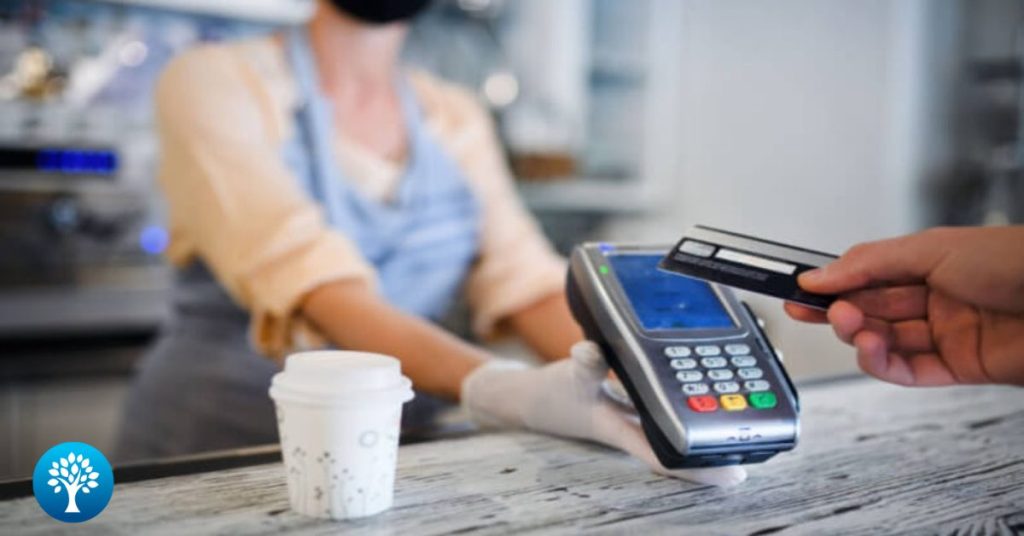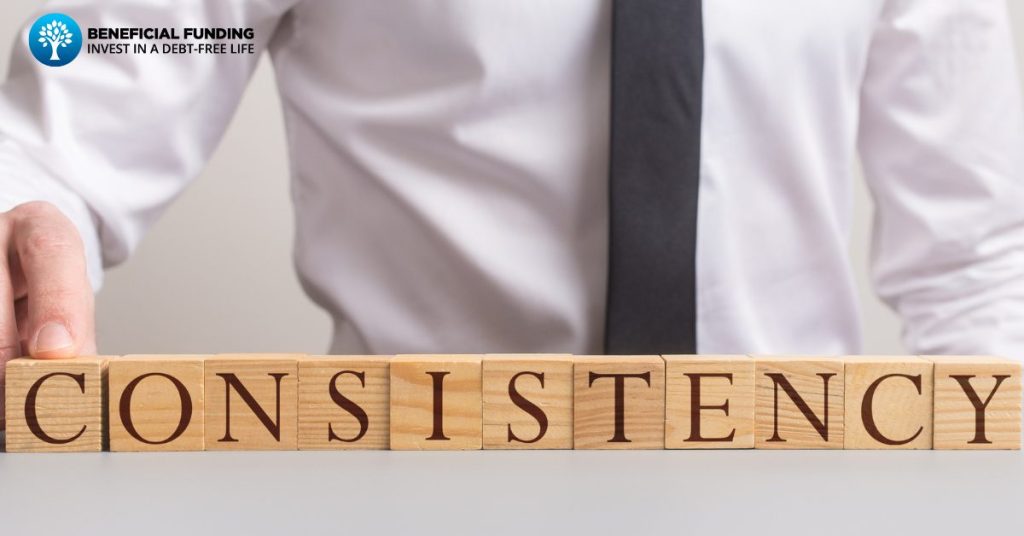How To Budget With A Debit Card

Budgeting your expenses can be challenging. You will have to deal with building your monthly report and planning in advance regarding how much money you should have left for entertainment, shopping, dining, and any other budget line items. Many people prefer using credit cards for most of their purchases due to the lower interest rates that are associated with these cards; however, credit cards can make it hard to stick to a budget because they let you get cash right away, which isn’t possible with a regular paycheck.
On the other hand, debit cards force you to budget money on a low income because you are limited by the funds that you have on hand.
What Is A Debit Card?
Because a debit card is linked to a checking account, you can get to your money quickly and easily. A debit card can be used to make new purchases, settle debts, and get cash from an ATM, bank, or credit union.
Using a debit card is the same as using cash. You can’t spend more than you have in your account unless you have overdraft protection turned on. When you use a debit card, money is automatically taken out of your checking account.
No matter what kind of debit card you use, you can check your monthly statements to see how much money you put in and take out. Although they might not improve your credit, debit cards might still be useful for budgeting.
There may be a number of fees for the connected checking account, such as overdraft fees, ATM fees, fees for foreign transactions, and monthly account maintenance fees if the minimum balance requirements aren’t met. Debit cards themselves normally don’t have fees.
Debit Card Vs. Credit Card
With 16-digit card numbers, expiration dates, magnetic stripes, and EMV chips, credit cards and debit cards often have a very similar appearance. With one significant exception, both can make it simple and convenient to make purchases offline or online.
With the use of debit cards, you can make purchases using money that has been deposited in a bank. With credit cards, you can borrow money from the card issuer up to a predetermined limit in order to make purchases or cash withdrawals.
Most likely, you carry a debit card and at least one credit card in your wallet. They provide unrivaled convenience and protection, but they also have significant disparities that could have a big impact on your wallet.
How To Budget With A Debit Card
The following are some tips on how to budget your money with a debit card:
1. Set A Budget
Now that you have a debit card and know how to use it, it’s time to learn how to budget. A good rule of thumb is to create a flexible budget that works for you. Create a realistic goal that works best for your lifestyle and financial goals.
2. Take A Good Look At Your Needs And Wants
Before you can budget with a debit card, you have to know what your needs and wants are. Only then can you put together a game plan for spending money.
3. Use Zero-Based Budgeting
Zero-based budgeting is a fairly simple way of looking at where your money goes. You start with nothing and build your budget from there.
When you use this method, you determine how much you have left over after paying for all of your bills and expenses, then allot that amount to each category of spending. This forces you to make sure that every dollar has been accounted for—no sneaky charges slipped in!
4. Use Online Or Mobile Banking To Keep You On Track
These tools allow you to see exactly where all the money is going, so if something doesn’t seem right, you can check it out.
5. Plan For Emergencies
When you have a debit card, it’s easy to spend money without thinking about the consequences. It’s important to be aware of your spending habits and plan for emergencies before they happen.
6. Be Consistent
On how to budget money for beginners, it’s important to be consistent. If you’ve set aside a certain amount of money for groceries each week, don’t spend more than that, even if your grocery bill is higher one week.
7. Keep Track Of Your Spending
Make sure to keep track of every purchase and where it came from—whether it’s cash, credit card, debit card, or any combination of the above.
We recommend tracking everything in one place so you can get an idea of how much money is coming in and where those funds are going out.
8. Monitor Your Budget Regularly
If you notice that you’ve gone over budget in certain areas and you’re searching for ways to budget groceries, then don’t make the mistake of thinking that using a debit card will help you save money by cutting down on credit card interest payments.
Instead, make adjustments to your budget so that it fits within what’s left of the month, and make sure not to forget any expenses that may have slipped under the radar during this process!
9. Take Advantage Of Free Budgeting Apps And Tools
You can use budgeting apps and tools, one of the most popular being Rocket Money, to help you track your spending, plan for the future, and make the most of your money. These apps will also help you create a budget that works for your lifestyle.
Should You Use A Debit Card For Budgeting?

Since you can see the impact on your checking account rather quickly when you use a debit card, it could be simpler to stick to a budget.
In contrast to using a credit card, which involves borrowing money that must be repaid, the amount is debited from your checking account upfront
Additionally, since you are not increasing your credit card debt, you are not concerned with issues like interest rates or minimum payments. However, keep in mind that applying for a debit card won’t help you establish credit or raise your credit score.
What Are The Benefits Of Using A Debit Card?
Millions of shoppers increasingly choose debit cards when making purchases rather than going with the more conventional cash or check payments.
This is why:
Easy To Get
Debit cards are simple to get and the majority of organizations will provide you a debit card upon request once you open an account.
Convenient
With a debit card, you may make purchases without fumbling for cash, searching through your pockets or handbag for exact change, writing a check, or visiting an ATM.
It’s also more convenient than ever because more and more establishments now accept debit card payments.
You Can Set Up Automatic Payments
Additionally, using a debit card is quicker and simpler than writing a check. It’s a convenient way to make purchases without having to pay interest, as you would if you used a credit card with a balance and set up automatic payments.
Safe To Use
Because your debit card cannot be used at an ATM without the PIN, debit cards help prevent theft. Debit cards’ latest introduction of chips provides further security.
Some debit cards additionally provide security safeguards for online purchasing, ensuring that only you can use your card to make purchases.
Saves Time
Transactions are quick, simple, and handy when using debit cards. You can receive cash using debit cards. They enable you to make ATM withdrawals and serve as dual-purpose ATM cards acting as an emergency fund for you as a result.
You Can Avoid The Risk Of Fraud
You can register for banking alerts in addition to daily online checks of your balance and recent activities.
In the event that particular activity on your accounts, such as a withdrawal that exceeds the limit you select or a change of address, occurs, your bank will then get in touch with you by email or text message.
Helps to Control Your Spending
For cash withdrawals, a debit card is preferable because it prevents overspending and debt. Your debit card is the most advantageous choice for cash withdrawals at ATMs. Fees will be kept to a minimal, and card information theft is rare.
Why Budgeting Is Important
Budgeting is an important part of managing your money, and here are some examples:
Budgeting Helps You To Make The Most Of Your Money.
Budgets help you avoid debt and overspending, which can lead to financial problems in the future. Budgets can also help you pay less tax at the end of each year by stopping you from spending unnecessarily on things.
If you have debt, a quicker and more practical approach to pay off your debt is with Beneficial Funding. Our individualized plans enable you to pay off debts faster by lowering your monthly payment and interest rates.
Our goal is to prevent financial surprises and prevent you from filing for bankruptcy. We assist you with debt management and relieve lending tension. When you contact us, one of our finance managers can assist you with the enrollment process and address any issues you may have.
Budgeting Helps You Plan For The Future.
Budgeting helps you plan for the future. It’s an essential part of being able to save money and achieve your goals, whether it be a vacation, buying a house or simply paying off debt.
Budgeting Helps You Keep Track Of Your Spending.
Budgeting is important because it helps you keep track of your spending. If you’re not tracking your spending, how will you know where your money is going?
You also need to be able to see how much money you have left over at the end of the month so that there isn’t any unnecessary spending.
Budgeting Helps You Avoid Debt
With the help of a budget, you can determine how much extra money you have each month to devote toward paying off debt. You may then set up automated transfers or autopay to let debt be paid off in a set-and-forget manner.
Budgets Let You Have More Control Over Your Finances, Which Makes Life Easier
Budgeting can be a difficult process, and it’s important to understand what a budget is if you’re going to take control of your finances. Having a budget can help you pinpoint where you’re spending too much, so you can make adjustments as needed.
Budgeting doesn’t always work for everyone but trying it out once could help you change your financial habits forever.

Consistency is Key!
It’s important to remember that the key to sticking to a budget is consistency. If you find yourself struggling with this new practice, don’t give up! With practice, you will refine your budgeting skills, and it will become easier.
Over time, you’ll find yourself spending less money on things that aren’t important and saving more for things that truly matter like retirement or kids’ education. Your financial situation will improve significantly over time as long as you keep at it consistently.
READY TO TAKE THE NEXT STEP?
Did you receive a Pre-Approval Code in the mail? Enter your code online to start the application process!
Interested in applying for a Personal Loan from Beneficial Funding? Visit us online now or give us a call at (888) 564-5590.
